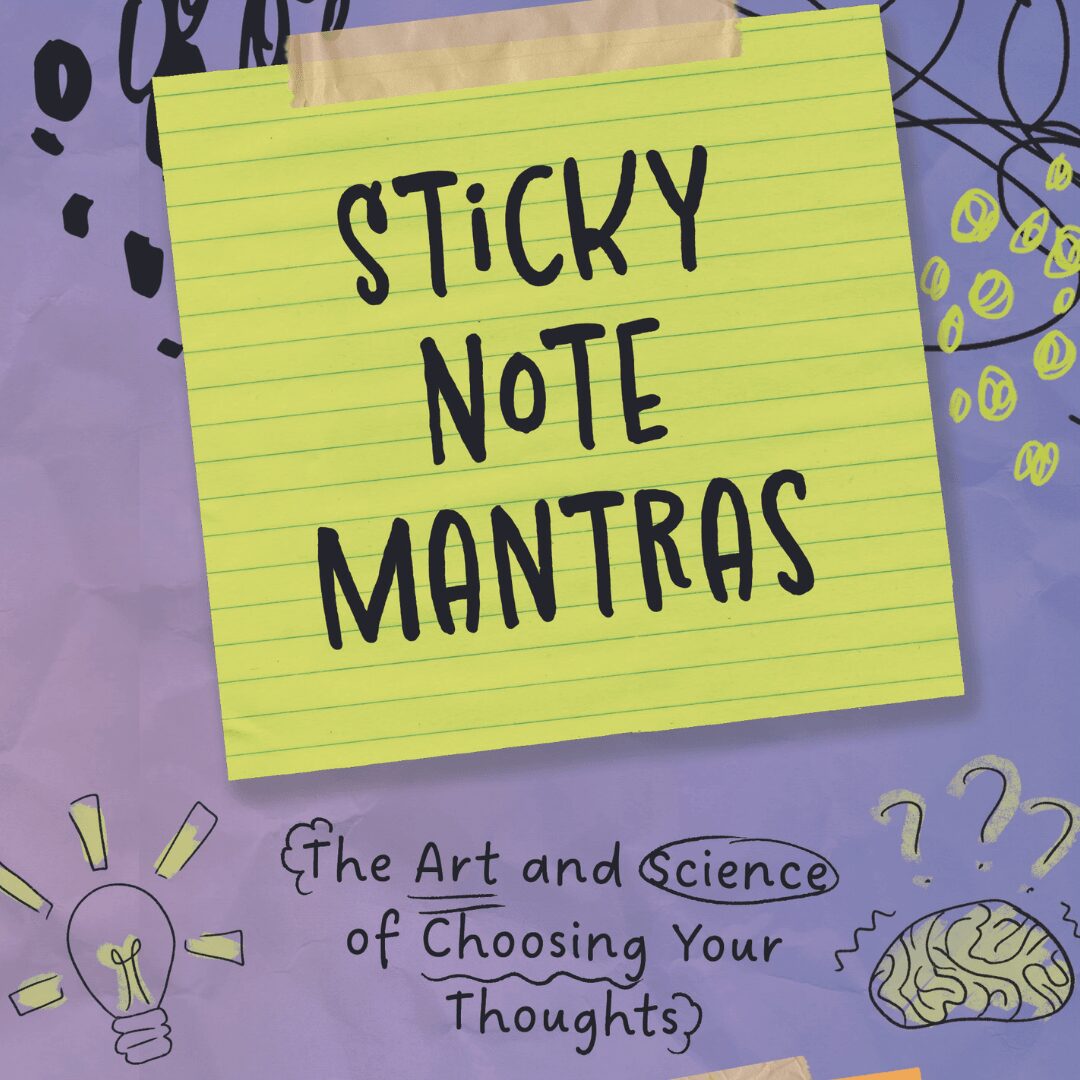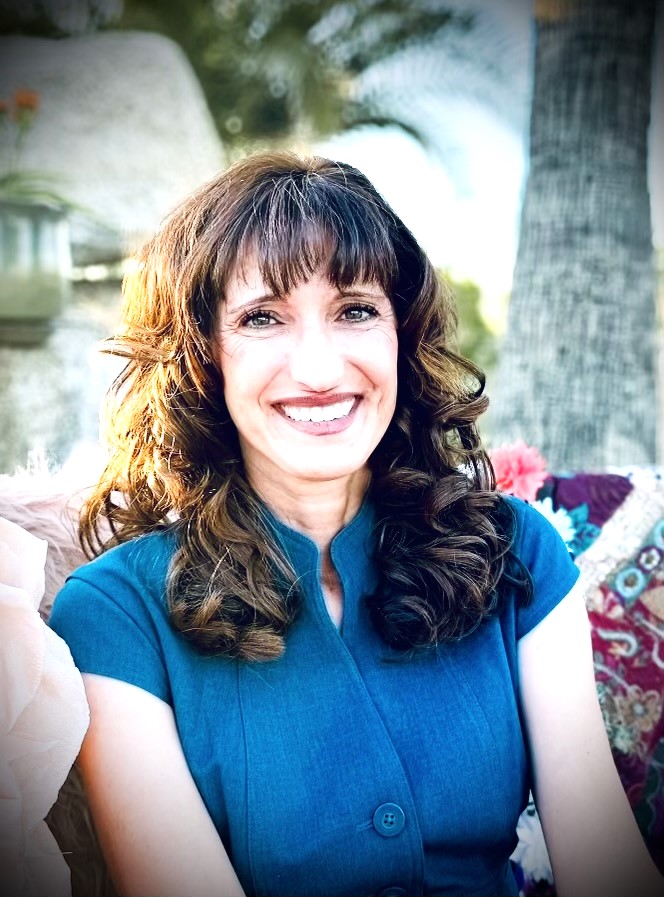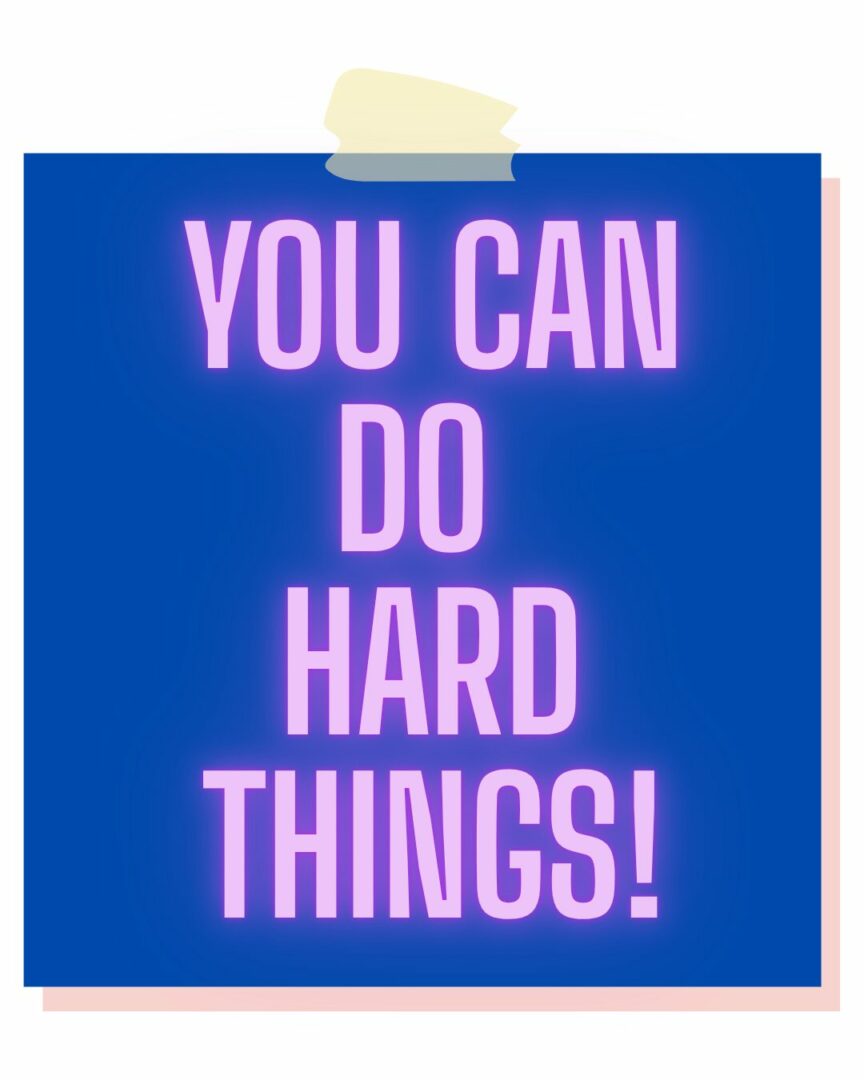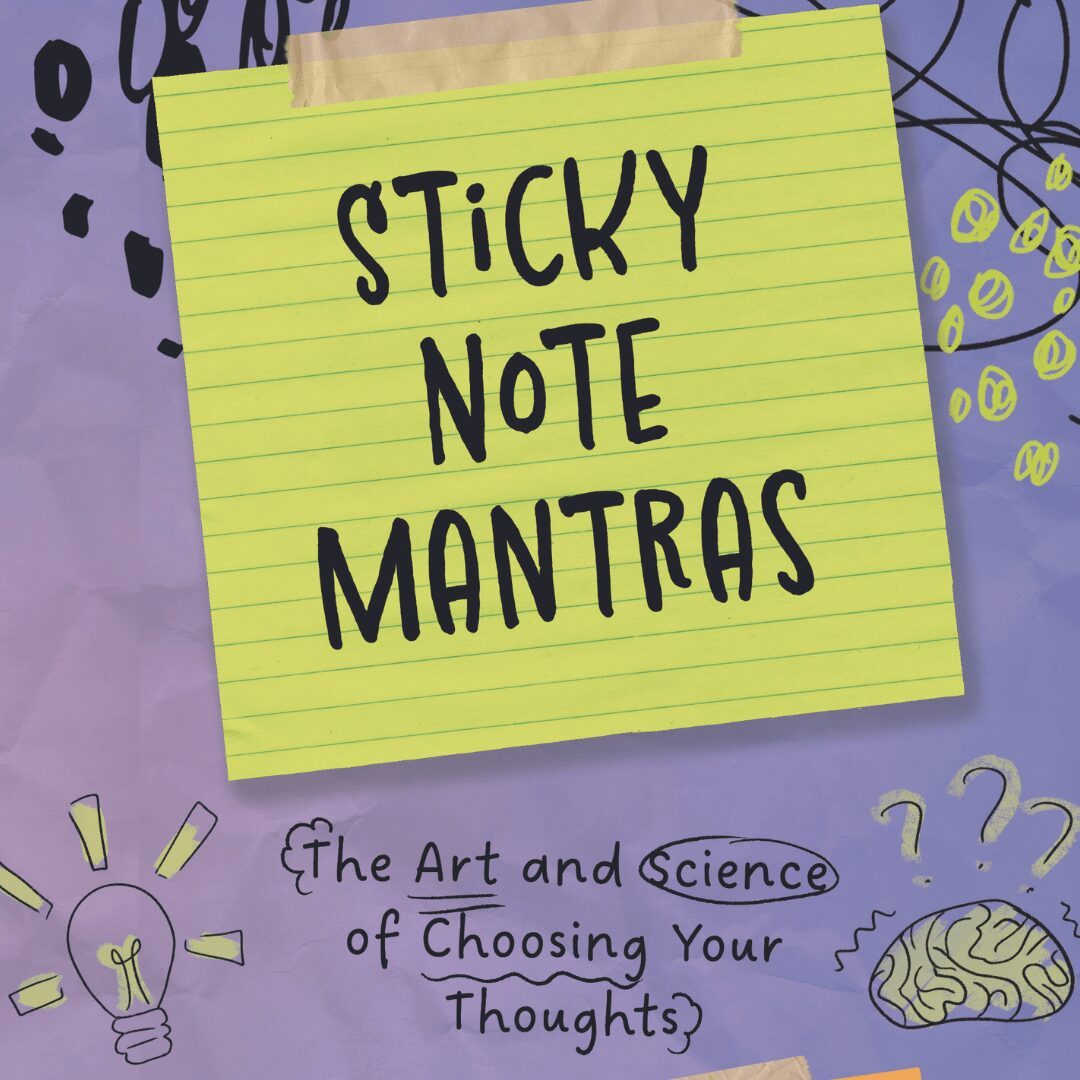We recently connected with Helene Zupanc and have shared our conversation below.
Helene, thanks so much for taking the time to share your insights and lessons with us today. We’re particularly interested in hearing about how you became such a resilient person. Where do you get your resilience from?
Don’t Believe Everything You Think: How OCD Hijacked My Brain—And How Mantras Helped Me Take It Back
“Don’t believe everything you hear – even in your own mind.” – Daniel G. Amen
This quote might sound like something you’d read on a coffee mug or an Instagram quote slide. But when your own mind is feeding you a 24/7 stream of terrifying, intrusive thoughts? That little phrase becomes a survival strategy.
Sure, I have lots of strategies now. But they weren’t born from a gentle spiritual awakening or a peaceful walk in the woods. They were born out of a relentless, knock-down, drag-out fight with obsessive-compulsive disorder (OCD). A fight that started when I was a kid and stole years of my life.
Let me be blunt: OCD is not quirky or cute. It’s not about liking things tidy or being “a little type A.” It’s a full-body, panic-inducing disorder where your brain screams, “You are in danger!”—even when there’s no actual threat. It’s counting in desperate loops. It’s rituals you don’t understand but can’t stop doing. It’s fear that feels like a gun pointed between your eyes, triggered by nothing more than a thought. I know because I have OCD, or I guess I should say “had” OCD.
Life with OCD: A War Inside My Head
From the time I was young, my brain was hijacked by fear. Fears that something terrible would happen. That I’d lose people I loved. That I’d be misunderstood, unworthy, unforgivable. These thoughts didn’t just whisper—they screamed. And my body listened: sweaty palms, racing heart, shallow breath. Over and over, even though nothing was really wrong.
To cope, I created rituals—compulsions that promised relief but never delivered. I’d roll my neck a certain way, flex my wrists, blink, swallow, count in rapid-fire succession—anything to feel right again. But it never really worked. Four was my magic number for a long time. I could fly through sixty-four sets of four faster than you’d believe. Still, the anxiety roared back every time.
Want a picture of what this looked like? Here’s one from high school: I’m sitting at the kitchen table. I glance—again—at the round straw basket on the wall. I roll my neck, flex both wrists, blink, swallow. Damn it. Not right. I start the sequence again. One-two-three-four. One-two-three-four. Again. And again. Four sets of four, done four times. Still not right. I’m drowning in invisible urgency while everyone else is just trying to eat dinner.
I had objects in every room of the house, each one assigned to a ritual. A cherry wood clock. The edge of a curtain rod. A fluorescent light tile. I didn’t choose this. I didn’t even understand it. And I definitely didn’t enjoy it. OCD stole my time, my energy, and my sanity. If I didn’t do the rituals, I was consumed by dread. If I did them, they were never good enough. It was a damned-if-you-do, damned-if-you-don’t existence.
Thoughts That Terrified Me
The content of my fears changed over time, but the intensity didn’t. Sometimes the dread was vague. Sometimes it was specific and disturbing—violent images, inappropriate sexual thoughts, blasphemous phrases. I obsessed that I’d pick up a knife and hurt someone. That someone I loved would die because I breathed the wrong way.
I couldn’t write without rewriting. I couldn’t look in a mirror without fearing I’d become vain. I drew invisible lines on the floor to protect people. I had to sit a certain way, speak a certain way, think a certain way. And God help me if a “bad” thought popped into my head mid-ritual—I had to start all over again.
At one point in college, while stuck in an endless loop of trying to put a piece of paper in a folder “just right,” I ended up stabbing a pencil into my thigh out of sheer mental exhaustion.
I truly believed I was broken.
Finding a Name—and a Way Out
I didn’t even know it was OCD until I stumbled across a book and then saw a video showing other people’s compulsions. It was a holy shit moment. You mean someone else can’t fold a towel just once either?
Once I had a name for what was happening, I could begin to untangle it. I learned that my brain was sending false messages—and that I didn’t have to obey them. A psychiatrist once explained it with a triangle: Most people’s thoughts bounce between points and move on. Mine got stuck in the triangle and just spun endlessly.
Knowing that helped. But what really changed everything was discovering mantras.
How Mantras Helped Me Rewire My Brain
My mom—who also struggled with OCD—started making up little phrases with me to cut through the noise. The one that changed everything?
“That’s a brain glitch. I don’t have to pay attention to that.”
It sounds simple, but that phrase became a mental lifeline. It helped me step back, call out the OCD lie, and redirect my focus. It was a way to challenge the urgency of the thought without getting pulled into the ritual. And it worked—not overnight, but consistently, over time.
Then I read Brain Lock by Jeffrey Schwartz, which broke down the exact same strategy: identify the thought, reattribute it, and refocus. I realized—I’d already been doing that with my mantras. They were helping me rewire my mind. That realization was empowering. I wasn’t just surviving anymore. I was retraining my brain.
Mantras, OCD, and the Messy Middle of Healing
Slowly, imperfectly, I stopped fighting my thoughts and started getting curious about them. I began to notice how fear hooked me—and how I didn’t have to take the bait.
My mantras started piling up on sticky notes everywhere. They were grounding. Sometimes funny. Sometimes serious. Sometimes just sarcastic enough to cut through the noise in my head. But they worked. They reminded me of what was true. They gave me just enough space to respond differently.
Because here’s the thing: OCD doesn’t run my life anymore. Sure, the tendencies still flare up under stress—but I have tools now. I have perspective. And I have mantras.
Not the fluffy kind that pretends everything is fine. The gritty, scrappy, fiercely compassionate kind. If you’re someone who struggles with relentless thoughts—whether it’s OCD, anxiety, or just the everyday noise of being human—I hope this inspires you to craft your own phrases, rooted in your values and the kind of life you want to move toward—or mantras that remind you to ignore that harsh inner critic and the fears that lurk in your mind.
You’re not alone.
Your thoughts are not always true.
And you are allowed to let go of thoughts that do not serve you.
Even if you have to let go over and over and over again. That’s okay. That’s the work.
Don’t believe everything you think. But start believing that you can heal.
Helene Zupanc has a Master’s Degree of Counseling, is a Licensed Professional Counselor in Arizona, currently specializing in OCD treatment. She recently cowrote and published Sticky Note Mantras: The Art and Science of Choosing Your Thoughts.

Appreciate the insights and wisdom. Before we dig deeper and ask you about the skills that matter and more, maybe you can tell our readers about yourself?
Helene Zupanc has a Master’s Degree of Counseling, is a Licensed Professional Counselor in Arizona, currently specializing in OCD treatment virtually throughout Arizona. She says being a therapist and helping others break their OCD cycle is one of the most challenging and rewarding experiences she has in her life. You can find her on Psychology Today or ZocDoc, she accepts all major insurances. She recently cowrote the book Sticky Note Mantras: The Art and Science of Choosing Your Thoughts. You can find her and her coauthor, Beth, promoting their book on weekends at book fairs. They also enjoy presenting wellness strategies from the book to small audiences around the state of Arizona.

There is so much advice out there about all the different skills and qualities folks need to develop in order to succeed in today’s highly competitive environment and often it can feel overwhelming. So, if we had to break it down to just the three that matter most, which three skills or qualities would you focus on?
When I look back on my journey with obsessive-compulsive disorder (OCD), I can see that three skills—curiosity, self-compassion, and cognitive flexibility—transformed everything. They didn’t come easily; they were forged in the fire of anxiety and doubt. But they became the foundation of healing.
1. Curiosity: Learning to Observe My Mind Instead of Obey It
OCD thrives on fear and certainty-seeking. For years, I believed every intrusive thought meant something dangerous. Learning to pause and say, “That’s interesting,” instead of “That’s true,” changed the game. Curiosity gave me distance from my thoughts.
Advice: Start by noticing your mental loops without judgment. Ask, “What’s my brain trying to protect me from?” Curiosity interrupts panic and invites understanding.
2. Self-Compassion: Meeting Myself with Kindness, Not Condemnation
For a long time, I believed I was broken. When my mom and I started creating mantras like “That’s a brain glitch, I don’t have to pay attention to that,” it gave me permission to treat myself gently. That phrase became a lifeline—a way to acknowledge pain without surrendering to it.
Advice: Self-compassion isn’t indulgent; it’s a healing strategy. Speak to yourself the way you would to someone you love who’s struggling. Practice small, consistent kindness.
3. Cognitive Flexibility: Training My Brain to Let Go
Through reading Brain Lock and practicing mantras, I realized I could rewire my brain. I learned to relabel intrusive thoughts as “false alarms” and refocus on what mattered. Over time, that mental flexibility freed me from rituals that once controlled me.
Advice: When you catch yourself trapped in “all-or-nothing” thinking, practice shifting your attention, even for a moment. Each time you do, you strengthen new neural pathways.
Today, my OCD doesn’t define me. It still whispers sometimes, but I have tools, perspective, and humor. If I could tell anyone early in their healing journey one thing, it would be this:
You don’t have to believe everything you think. But you can believe in your capacity to heal.

As we end our chat, is there a book you can leave people with that’s been meaningful to you and your development?
Brain Lock by Jeffrey Schwartz was one of the most transformative books I’ve ever read. It gave language and structure to something I had already begun doing intuitively—rewiring my brain through awareness and repetition. The book explains the Four Steps for managing obsessive-compulsive disorder (OCD): Relabel, Reattribute, Refocus, and Revalue.
The most valuable nugget of wisdom was understanding that intrusive thoughts are “false messages from the brain.” That concept alone changed everything. It allowed me to step back from my thoughts instead of being swallowed by them. I learned to say, “That’s not me—that’s my OCD,” which created just enough distance to make a different choice.
Another powerful takeaway was the idea that you can literally change your brain through intentional practice. Every time I resisted a compulsion, I was not just “being strong”—I was building new neural pathways. That turned my healing into an empowering, active process rather than a passive waiting game.
Finally, the book reminded me that recovery isn’t about never having intrusive thoughts again—it’s about changing your relationship with them. That insight has guided not only my own healing but also how I now support clients who are learning to take back control from OCD.
Contact Info:
- Website: https://stickynotemantras.com/
- Instagram: https://www.instagram.com/stickynotemantras/
- Facebook: https://www.facebook.com/stickynotemantrasbook
- Linkedin: https://www.linkedin.com/in/helenezupanc/
- Other: https://www.amazon.com/Sticky-Note-Mantras-Choosing-Thoughts/dp/B0D2LV2797

so if you or someone you know deserves recognition please let us know here.




